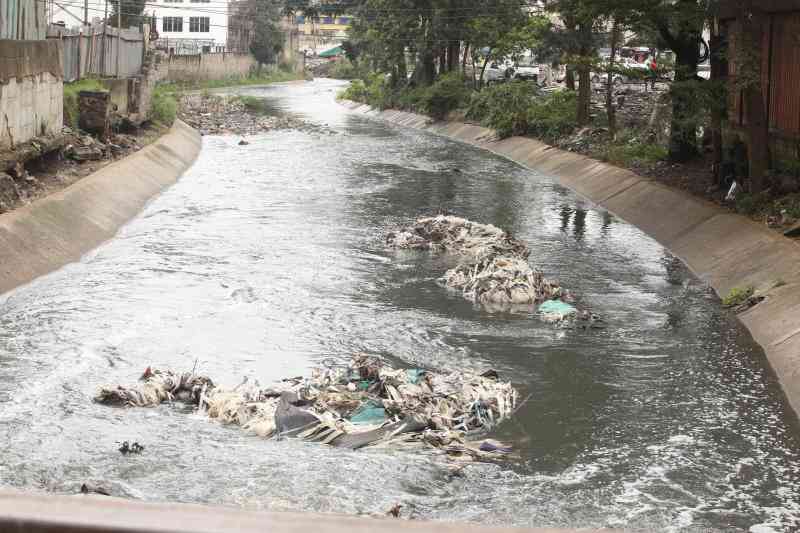Mavoko residents plant bamboo trees to reclaim polluted Athi River

[Elvis Ogina, Standard]
A section of Mavoko residents in Machakos County are calling on the county government to take firm action against industries discharging untreated waste into the Athi River.
The residents have lamented over continued pollution that is threatening the health and livelihoods of thousands of people who rely on the river’s water downstream.
The residents, led by the KISAKA Foundation, held a tree-planting event along the riverbank this week, planting bamboo trees as part of a long-term strategy to rehabilitate the river’s ecosystem and raise awareness about the environmental damage caused by industrial pollution.
“Today, we are cleaning this river not just for us, but for all those who depend on it downstream,” said John Kakui, Chairperson of KISAKA Foundation.
“We have reached out to companies responsible for the pollution, but most of our efforts have gone unanswered,” he added.
Bamboo trees were selected specifically for their high-water retention capacity and ability to filter pollutants, according to forestry experts from the Kenya Forest Service (KFS).
“Bamboo is ideal for riparian zones,” said KFS researcher Jimmy Maison. “It prevents erosion, absorbs toxins, and restores soil health.”
The initiative is supported by Green Africa Group, with plans underway to expand similar environmental restoration efforts across the Lower Eastern region. Organizers believe that if properly rehabilitated, Athi River could be a vital source of irrigation water to help the region overcome recurring droughts and food insecurity.
Despite the lack of response from many polluting firms, residents acknowledged some companies have put wastewater treatment systems in place.
Vivian Nabuso from the Export Processing Zones Authority (EPZA) said, “We ensure our effluent is treated before it is discharged into the river.”
Kakui, however, added that more must be done: “We appreciate those who follow environmental regulations, but the government must crack down on repeat offenders. The river cannot be a dumping ground.”
The community-led effort is a grassroots call for sustainable development and environmental accountability, with the hope that the government and private sector will step up and protect one of the region’s most vital natural resources.
You may also like...
Diddy's Legal Troubles & Racketeering Trial

Music mogul Sean 'Diddy' Combs was acquitted of sex trafficking and racketeering charges but convicted on transportation...
Thomas Partey Facing Rape & Sexual Assault Charges

Former Arsenal midfielder Thomas Partey has been formally charged with multiple counts of rape and sexual assault by UK ...
Nigerian University Admission Policy Changes

JAMB has clarified its admission policies, rectifying a student's status, reiterating the necessity of its Central Admis...
Ghana's Economic Reforms & Gold Sector Initiatives

Ghana is undertaking a comprehensive economic overhaul with President John Dramani Mahama's 24-Hour Economy and Accelera...
WAFCON 2024 African Women's Football Tournament

The 2024 Women's Africa Cup of Nations opened with thrilling matches, seeing Nigeria's Super Falcons secure a dominant 3...
Emergence & Dynamics of Nigeria's ADC Coalition

A new opposition coalition, led by the African Democratic Congress (ADC), is emerging to challenge President Bola Ahmed ...
Demise of Olubadan of Ibadanland
Oba Owolabi Olakulehin, the 43rd Olubadan of Ibadanland, has died at 90, concluding a life of distinguished service in t...
Death of Nigerian Goalkeeping Legend Peter Rufai

Nigerian football mourns the death of legendary Super Eagles goalkeeper Peter Rufai, who passed away at 61. Known as 'Do...




